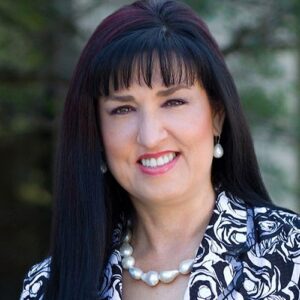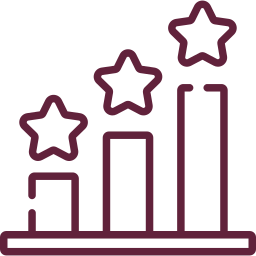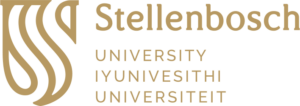Sustainable Development
at STELLENBOSCH UNIVERSITY
Sustainable Development at SU
Higher Education Institutions within Africa can play a significant role in fulfilling the sustainable development agenda, as they are not only training the leaders and policy makers of the future since they offer cross-sectoral expertise, research, and education resources. SU’s own strategic vision is aligned with both Sustainable Development Agendas.
One of the outcomes of Vision 2040 is to be the leading research-intensive university in Africa while serving the needs of its community, which is in line with the two main Sustainable Development Agendas.
How do we deliver this?

Vision 2040 and the King IV report
For its Annual Integrated report Stellenbosch University uses the King Committee on Corporate Governance guidelines (King IV) for the exercise of ethical and effective leadership by the governing bodies for the betterment of South Africa for its citizens.
Learn More
At an institutional level, Stellenbosch University’s Vision 2040 and Strategic Framework 2019 – 2024 state that the mission of the University is to be “a research-intensive university where we attract outstanding students, employ talented staff and provide a world-class environment; a place connected to the world, while enriching and transforming local, continental and global communities.” The Strategic Framework further identifies six, core strategic themes to achieve Vision 2040, namely: a transformative student experience, networked and collaborative teaching and learning, research for impact, purposeful partnerships and inclusive networks, being an employer of choice, and a thriving Stellenbosch University.
In the foreword, the Stellenbosch University Vice-Chancellor, Prof Wim de Villiers contextualises the SU Vision 2040 as a framework that was developed using SA’s National Development Plan (NDP) at the local level, the AU’s Agenda 2063 at a regional level, and the SDGs of the 2030 Agenda on a global level. This inclusive, future-oriented planning bears testament to the University’s commitment to creating an Higher Education Institution that strives to create a world-class university – not only in service of South Africa, but also the African continent.
For its Annual Integrated Report Stellenbosch University uses the King Committee on Corporate Governance guidelines (King IV) to ensure ethical and effective leadership by the governing bodies for the betterment of South Africa and its citizens. The code is built around the three key pillars of leadership, sustainability and good corporate citizenship. The Stellenbosch University Statute was completely rewritten in 2018 and adheres to the principles of King IV.

A word from Prof Hester Klopper
A word about sustainability at Stellenbosch University form Prof Hester C. Klopper, Deputy Vice-Chancellor: Strategy, Global and Corporate Affairs
Learn More
 Stellenbosch University (SU) has a vision to be the leading research-intensive university on the African continent, and to be globally recognised as excellent, inclusive and innovative, and a place where we advance knowledge in service of society. We believe in living this vision daily through the work that we do in teaching and learning, research, and ensuring a societal impact. One of the aspirations for the realisation of our vision is to be a systemically sustainable institution.
Stellenbosch University (SU) has a vision to be the leading research-intensive university on the African continent, and to be globally recognised as excellent, inclusive and innovative, and a place where we advance knowledge in service of society. We believe in living this vision daily through the work that we do in teaching and learning, research, and ensuring a societal impact. One of the aspirations for the realisation of our vision is to be a systemically sustainable institution.
Strategy drives our institution – we have set out six core strategic themes in our Vision 2040 and Strategic Framework 2019–2024. Since our aim is to achieve a thriving Stellenbosch University, this is Theme 1. To do so, SU’s stakeholders are crucial partners, and therefore Theme 2 is a transformative student experience (students being our largest internal stakeholder group) and Theme 3 is purposeful partnerships and inclusive networks, engaging our external stakeholders. These are followed by SU’s main drivers and core business, i.e., Theme 4, networked and collaborative teaching and learning, and Theme 5, research for impact. Theme 6, employer of choice, positions University staff as a critical enabler.
To make the University a thriving organisation (Theme 1), we envisage a vibrant, prosperous and systemically sustainable university. Systemic sustainability thus relates to the continuity of the economic, social, institutional and environmental aspects of human society, as well as the non-human environment. It affects every level of our organisation – from the University, to the local neighbourhood, to the entire planet.
Guided by our strategy, SU is committed to support both the United Nations’ (UN) 2030 Agenda and its Sustainable Development Goals (SDGs), as well as the African Union’s (AU) Agenda 2063 for a peaceful and prosperous Africa.
It is to this end that SU launched its Sustainable Development Impact Hub in 2021. Called the SDG/2063 Impact Hub, it was established to measure the institution’s contribution to, and advocate for, the uptake of both the UN 2030 Agenda and its SDGs, as well as the AU’s Agenda 2063.
Because we are a university rooted in Africa, we serve both these agendas as both have sustainable development at their core. We are committed to ensure a sustainable future for our continent by addressing the most important social, economic and environmental challenges Africa is facing. But these challenges also impact the world we live in, and therefore we expand our gaze beyond continental borders with the aim of making a global impact.
In this website, we have highlighted the ways in which SU has contributed to ensuring a sustainable future for Africa and the world.
Prof Hester C. Klopper
Deputy Vice-Chancellor: Strategy, Global and Corporate Affairs

Environmental Sustainability Plan
The University’s Environmental Sustainability Plan offers a roadmap to develop Stellenbosch responsibly by respecting ecological thresholds, enhancing society, as well as the natural environment – without depleting our natural resources.
Learn More
The goals of the plan are to meet the following milestones:
- Carbon Neutrality by 2030
- Carbon Net Zero by 2045
- Net Zero by 2050 (As per the UN’s target)

The SU contribution per Goal
Stellenbosch University is committed to the progress of the SDGs and to reporting on its contributions to reaching these goals.
Learn More
To learn more about Stellenbosch University’s contributions to the progress of the SDGs, visit the page describing our Sustainability Contributions or read our report, Sustainable Development for The Africa we Want.

Outreach: Social Impact for Sustainable Development
Outreach is essential for the promotion of sustainable development in South Africa and beyond.
Learn More
Stellenbosch University is involved in many outreach projects that promote sustainable development. You can find out about these projects in our upcoming Sustainable Development Integrated Report.

Partnerships for the Goals
Sustainability is the responsibility of everybody and cannot be achieved without collaborations between people, industries, and governments.
Learn More
In 2021, Stellenbosch University had 317 partners in 64 different countries and had more than 2 900 international students, potentially increasing our connections even further. Fifty-four postgraduate students are currently enrolled in the joint degree offering, connecting these students to other exemplary universities worldwide. Connections to international partners increased in every region during 2021.

Governance
Stellenbosch University is committed to giving all stakeholders in the University a voice when it comes to the governance of the University.
Learn More
The Stellenbosch University Council has members that are elected by the Student’ Representative Council and members that are elected by staff (academic and non-academic staff elect separate representatives).
Stellenbosch University is committed to giving its students a voice in the growth and transformation of the University. Students elect their Student Representative Council (SRC) through annual elections. The SRC has a position in the highest governing structures of the University, namely the Council, Senate, and the Institutional Forum. SRC members are also part of Faculty Boards and various other committees. Tygerberg Campus and Saldanha Campus have their own SRCs, members of which are ex-officio members of the Council.
Students from the various Faculties also form the Academic Affairs Council (AAC), whose functions include being part of the Academic Planning Committee and the Learning and Teaching Committee.
The Stellenbosch University Council includes members that are elected by the convocation (alumni of Stellenbosch University), members appointed by the Stellenbosch Municipality and the Western Cape Government.

Impact Rankings
Stellenbosch University takes part in several international rankings.
Learn More
More information regarding the University’s rankings can be found on the Information Governance website.
